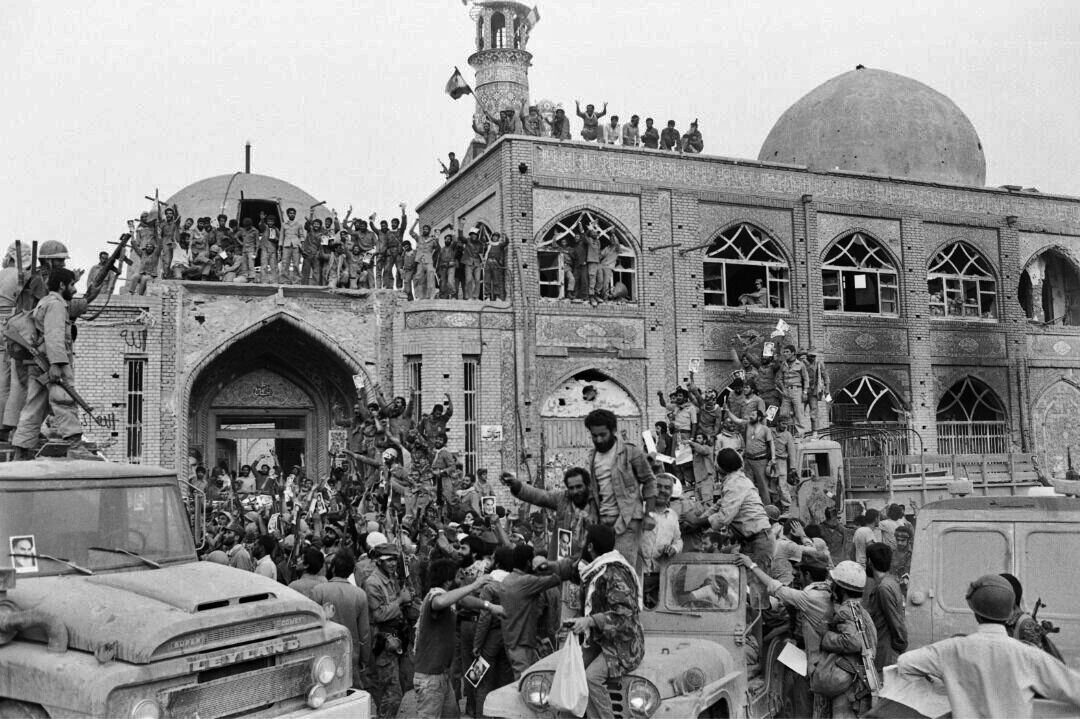Khorramshahr: The Liberation that defined a nation

TEHRAN – The echoes of battle may have faded, but the significance of Khorramshahr's liberation remains resonant. On Saturday, May 24th, Iran marks the 43rd anniversary of the city's recapture from the foreign-backed Iraqi Baathist regime, a victory that continues to shape Iranian identity and national pride.
How did Khorramshahr fall to the enemy?
The former Iraqi dictator Saddam Hussein was lured into initiating a war against Iran following the 1979 Islamic Revolution. He hoped to seize the rich oil-producing Iranian province of Khuzestan along the shared border by taking advantage of perceived chaos in the Iranian government in the months after the Islamic Revolution. Perhaps, he was drawn into the conflict by Western states, most notably the United States, who were angered at the Iranian uprising.
In September 1980, the Iraqi military took the Iranians by surprise and captured the Iranian port city of Khorramshahr after weeks of street fighting. To be precise, it took 34 days for the foreign-backed Saddam regime to occupy the city. The Ba'athist forces faced stiff resistance before they managed to capture the city. The well-equipped Iraqi military’s troops outnumbered the much smaller Iranian troops and the defenders of the city.
Faced with the Iranians’ heroic resistance, the Iraqis failed to advance to occupy the important oil-refining center of Abadan, located just 12 km to the east of Khorramshahr.
Battle to liberate Khorramshahr
After the city was occupied by the invading Iraqi army on 26 October 1980, the Iranians started to take action to retake it and punish the aggressor. They became united under the leadership of the late founder of the Islamic Revolution, Imam Khomeini.
An army of 70,000 comprising the regular army and the newly established Islamic Revolutionary Guards Corps (IRGC), as well as the popular mobilization voluntary forces known as Basij began their counter-offensive in an operation code-named Operation Beit al-Moqaddas on April 30, 1982 to free the city and other occupied areas southwestern province of Khuzestan.
The Iranian forces first pounded the positions of the Iraqi occupying forces in Khorramshahr with artillery and then launched an all-out assault on the city and overran two Iraqi defensive lines in the Pol-e Now and Shalamcheh region.
Next, the Iranians concentrated next to Arvand Rud (also known as Shatt al-Arab waterway in Iraq) and laid a siege on Khorramshahr. They constructed a pontoon bridge over the Karun River, which allowed them to cross into the city.
Then, during the last two days, the Iranian forces engaged in fierce street fighting to put an end to the 19-month occupation. They took over the last positions of the Saddam regime’s troops in the city after 24 days since the start of the heroic operation.
At 2 p.m. on May 24, 1982, the national Iranian TV and radio announced the liberation of Khorramshahr. The Iranian flags were again flown at the top of the Grand Mosque and the city’s bridge. Iranian troops performed their prayers in the Grand Mosque to appreciate God the Almighty for the victory.
The news of the liberation of Khorramshahr soon reverberated across the country. People from all walks of life poured into the streets in celebration. They distributed sweets and beverages as they were jubilant after hearing the news. They also went to the rooftops of their homes to chant Allah Akbar as they do on February 11 each year on the anniversary of the Islamic Revolution victory.
The aggressor suffers huge losses
During the operation to liberate the city, the Iranians captured approximately 19,000 soldiers from a now-demoralized Iraqi Army. Estimates show that some 6,000 Iraqi troops were killed and thousands of others were wounded in the operation.
The liberation of Khorramshahr is considered a turning point during the eight-year Iraqi-imposed war on Iran because it marked a strategic failure for the shattered Iraqi army. Saddam Hussein was reported to have been shocked and infuriated by the defeat and ordered the executions of many generals in his army afterwards.
Many observers say that the victory in Beit al-Moqaddas tilted the political and military balance in Iran’s favor. Even though the city had been reduced to rubble by the Iraqis, its liberation boosted the morale of the Iranian armed forces, who went on the offensive ever after.
The Saddam regime and its backers were frightened at the decisive victory. The aggressor Ba'athist regime and its regional and international backers immediately shifted their stance from military aggression to diplomacy and pleas for a ceasefire.
The city's liberation allowed Iranian forces to push deeper into Iraqi territory. Some estimates suggested at the time, the Baathist regime lost almost half of its military forces in the battle for Khorramshahr.
The resounding victory also raised further awareness among the Iranians about the power of devotion to faith and to a cause, revitalized the strength of the Iranian military, and proved the efficiency of Iran’s military strategies.
In a historic message on the victory, Imam Khomeini said that it was God the Almighty who freed Khorramshahr despite all the support that world powers, including the U.S., U.K., Germany, France, and the Soviet Union, etc. gave to the Saddam regime.
Also, the current Leader of the Islamic Revolution, on different anniversary occasions of Iran’s retaking of its city, has pointed to the role of the Iranian commanders’ expertise and strategic skills, as well as the faith in Allah and reliance on him for defeating the coalition of the Saddam regime and its backers.
“Through this great operation, our military commanders displayed their praiseworthy knowledge, expertise, and competence to the world,” Ayatollah Seyyed Ali Khamenei said in a statement issued on May 24, 1999, to mark the liberation of the city. “The second factor, which was even more significant than the first one, was the great faith and the resultant bravery and perseverance of our military forces,” he added, according to his official website.
Leave a Comment